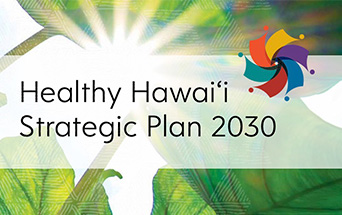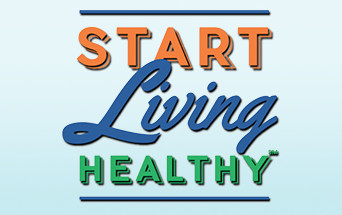Program Priorities
What is Comprehensive Cancer Control?
Comprehensive cancer control (CCC) is a process through which communities and partner organizations pool resources to reduce the burden of cancer. The CDC initiated the National Comprehensive Cancer Control Program (NCCCP) in 1998 to help states, tribes, and territories form coalitions to fight cancer. These coalitions collect data to determine the greatest cancer-related needs in their area, and develop and carry out cancer plans to meet those needs. The CCC plans include activities that —
- Encourage people to live a healthy lifestyle.
- Promote cancer screening tests.
- Increase access to good cancer care.
- Improve the quality of life for people who survive cancer.
Comprehensive Cancer Control Program
| About the Program |
| Funded through a grant from the Centers for Disease Control and Prevention (CDC) in 2001, the Hawaii Comprehensive Cancer Control Program (HCCCP) is operated by the Hawaii State Department of Health, and uses an “integrated and coordinated approach to reduce cancer incidence, morbidity, and mortality through prevention, early detection, treatment, rehabilitation, and palliation”. The mission of HCCCP is to bring people together to coordinate cancer prevention, early detection, treatment, support, and research efforts to improve the quality of life for residents of Hawaii. The Program’s vision is “No More Cancer” in our state. HCCCP hopes to make this vision a reality through the Hawaii Cancer Plan. |
| Comprehensive Cancer Control Coalition |
| The Chronic Disease Management and Control Branch’s HCCCP convenes key leaders from across the state, including health care providers, community organizations, advocates and cancer survivors, forming the Hawaii Comprehensive Cancer Coalition (HCCC). With a vision of “No More Cancer,” the coalition developed a statewide cancer plan in 2003 to reduce Hawaii’s cancer burden. The plan, which was updated in 2020, is a road map for the coalition to identify gaps in cancer care, share best practices and address its top four priorities: prevention, early detection, equitable access to care and quality of life. The coalition has been involved in activities such as mobilizing efforts that support policy and environmental changes, increasing cancer survivorship resources and widening access to patient navigation services in the cancer care system. |
| Coalition Members |
The HCCC convenes cancer stakeholders who are dedicated to reducing the impact of cancer throughout the state. Our approach to eliminating cancer in Hawai‘i requires us to address a multitude of known and unknown factors that can critically affect the growth, development and severity of the disease. Our strategies are focused on:
The HCCC established action teams, task forces, and working groups formed by closely matching individuals who possess the appropriate expertise with the tasks of the HCCC. Current teams include the Colorectal Cancer Task Force, Vaccine Preventable Cancers Workgroup, the Quality of Life Action Team, and Access to Care Action Team. To join the Coalition and/or join one of the teams, go to the Hawaii Comprehensive Cancer Coalition website at www.hicancercoalition.org. |



